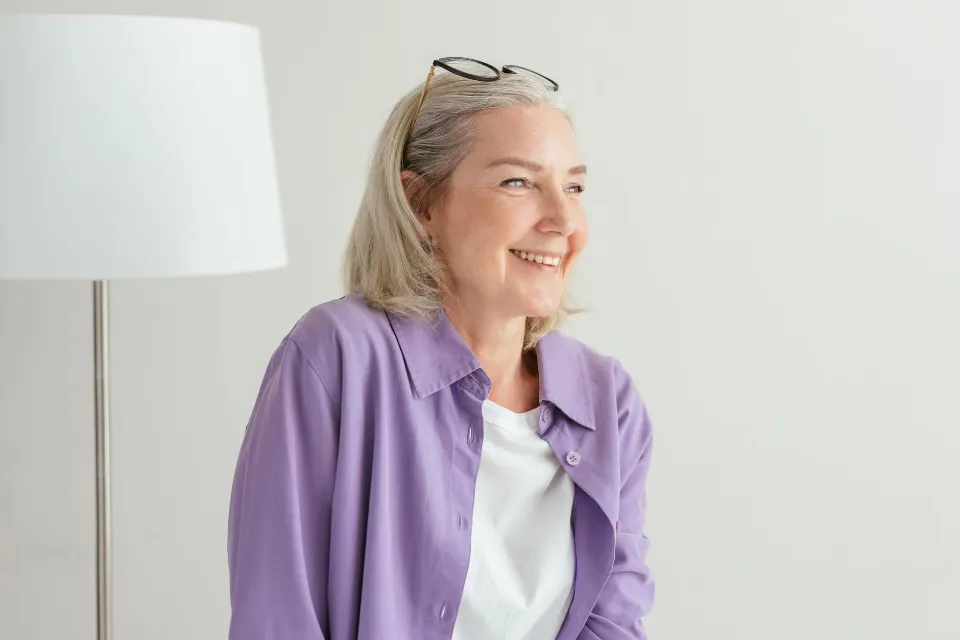It’s amazing how many things get better with age: whiskey, blue jeans, leather boots, cheese, wine, antiques, trees, and friendship. What else gets better with age, you ask? You. Think about it.
Contrary to common belief, you (yes, you!) can also age successfully over time. If you’re curious about how to age better as you make later transitions in life – and better yet, why you should embrace getting older – read on.
Why Getting Older is Good?
being aware of what’s crucial. When we’re younger, it’s easy to get sucked into a lot of things and worry about things that are ultimately unimportant. As we get older, we care less and less about those things like what brand of clothes we’re wearing, whether or not we are keeping up with the Joneses or being the “perfect” host or hostess. This gives us the opportunity to focus on the things that are really important in life: friends, family, happiness and fulfillment.
Being comfortable in your own skin. You have more opportunities to know yourself and who you are (and aren’t) with each year that you live. That sense of self-understanding is one of the best things about reaching a certain age. You are content with who you are and don’t worry about trying to change who you are in order to please others or be someone you are not.
You’ve grown wiser and more intelligent. At least, that’s what we all hope we are. Having years of experience on your side means that you have a lot of tools in your toolbox for making decisions, understanding things and generally knowing what’s what. And the stuff you might not have the answers for? That’s fine; you can find out the answer if you want to, or you might realize that it’s not really that crucial to you.
You aren’t concerned with what other people think of you. This goes hand in hand with “being comfortable in your skin” as well as knowing your priorities. You don’t seek attention merely out of curiosity. You don’t care what other people think about you. Instead, you do things for you and the people you care about. Being true to who you are is much more liberating (and fun) and much less draining.

What Gets Better With Age: 10 Surprising Things
Emotional Intelligence
According to Laura Carstensen, PhD, Director of the Stanford Center on Longevity, aging has several advantages for older people that are connected to emotional stability. She first claims that advancing age can breed compassion. Second, since major life milestones—such as major career shifts or purchasing your first home—are typically out of the way, you’ll have fewer stressful decisions to make. In short, older people become more settled into the rhythm of their lives and walk on solid ground. The capacity to see hope in the face of mortality is then possibly the strongest indicator of emotional intelligence in mature populations. They frequently acknowledge and accept the frailty of life when they have happy experiences. Instead of being morbid or depressing, they are better able to live in the present and value what is right in front of them.
Semantic Memory
Some types of memory actually improve with age. Semantic memory, or the ability to recall facts and figures, is age-resistant. It is your knowledge of the world and your experiences. Additionally, prospective memory helps with things like remembering where you put your keys when you need to pick up the dry cleaning. The organization of their lives and the practice of writing things down in later life tend to be memory-enhancing.
Happiness
When you’re young, you have a lot of concerns and instability. Getting through school, raising a family, starting a career, working through financial issues … we’re not saying that old age is free of things to worry about. Simply put, as you get older, the things that seemed to occupy all of your time and keep you up at night fade away. In their place, you have a life you’ve made for yourself … one that you can start enjoying fully now that you don’t have those worries anymore.
Decision-making Skills
A 2011 study found that older populations are superior to their younger counterparts at making well-informed decisions that affect rewards in the future. Younger participants, however, excelled at tasks that required independence and short-term rewards. The older group won the marathon, despite the fact that the younger group may have won the sprints. The results of this study indicate that as people age, they become more level-headed and less impulsive. Additionally, they seem to be better at fully evaluating situations for long-term gain as opposed to short-term gratification.
Self-confidence
As people get older, they stop wishing they had someone else’s life and start feeling more at ease with themselves. When we reach a certain age, we stop trying to please other people and start accepting ourselves for who we are.

Ability to Let Go of Negative Emotions
According to a 2008 study of 340,000 Americans, ages 18 to 85, participants were much less likely to report holding onto stress and anger by the age of 50. In turn, hedonic well-being (affective feelings of happiness, pleasure, etc.) appears to improve by this age. This theory is supported by a different study, which demonstrates that even after age 60, people experience negative emotions less frequently.
Conclusion
While aging is a fact of life, it’s important to understand that it’s not the same as getting older or declining. The key to healthy aging is frequently to maintain a positive attitude and to resist giving in to perceived burdens or stereotypes.



